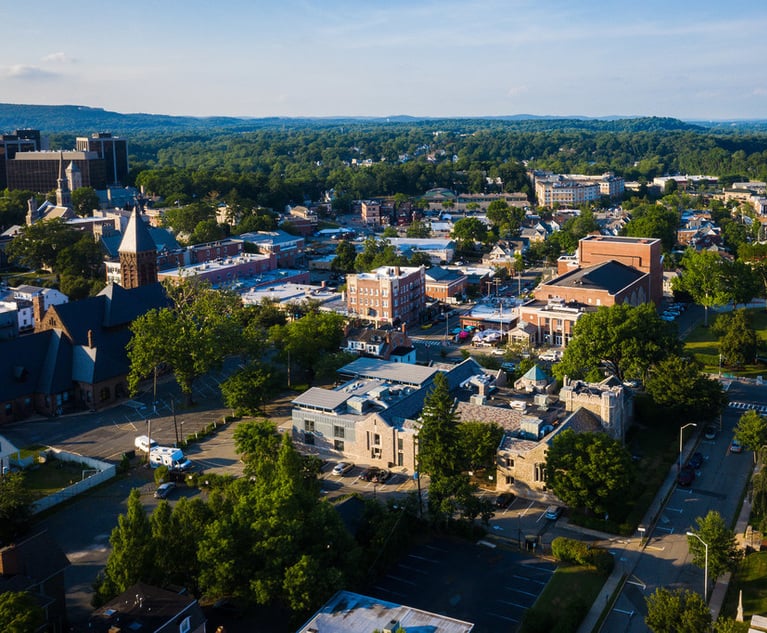A former judge has come up with an idea for giving environmental litigation a jump-start, with natural resources contamination suits proliferating in New Jersey, and courts suffering from backlogs and judge shortages.
Marina Corodemus, a retired Middlesex County Superior Court judge who supervised mass tort litigation, is seeking support for a proposal to send water pollution suits into early mediation and targeted discovery in an effort to promptly resolve cases.
Corodemus’ proposal calls for a mandate on the state to promptly sign off on or reject the terms when a settlement is reached, while preserving the public’s right to receive notice and make comments on the action.
‘Better Mousetrap’
 Marina Corodemus, a retired Middlesex County Superior Court judge. Courtesy photo
Marina Corodemus, a retired Middlesex County Superior Court judge. Courtesy photo
Typically, Corodemus said, a water pollution suit might take two to four years to settle, and then the Department of Environmental Protection and the Division of Law in the Attorney General’s Office undertake lengthy reviews before signing off.
But a pilot program could make cases move faster and save litigants’ money.
“It seems like a better mousetrap, a better way to do things. I think it’s more efficient, more economical, now that the courts are especially backlogged. It takes a lot of time to do these cases,” Corodemus said.
The former judge said legislation is the best way to establish a pilot program because the law allowing the state to file suit is a legislative creation.
She added that the number of backlogged cases in New Jersey courts has gone from 23,917 in March 2020, before the start of the pandemic, to 97,032 cases in September 2021 and 94,963 in November 2021, a fourfold increase in 20 months.
Corodemus added that the state courts in New Jersey have 75 vacancies, with another 22 seats expected to be vacated by the end of 2022.
In addition, the number of environmental enforcement actions by New Jersey has been climbing, due in part to enactment of the state’s Environmental Justice Law in 2020, which seeks to address the disproportionate impact of pollution on low-income communities and communities of color, Corodemus said.
 Marc Rollo. Courtesy photo
Marc Rollo. Courtesy photo
“I’m saying, listen, maybe we should do a three-year pilot program to see if it works. There’s a sunset provision, so the Legislature can review it and they can either create it as a permanent program and fund it long term or they can turn around and say, you know, it didn’t work,” Corodemus said.
Among the natural resource suits filling the state’s courts is a class action suit in Middlesex County Superior Court in which customers of Middlesex Water Co. seek to recover for the contamination of their water supply with a cancer-causing chemical, perfluorooctanoic acid. In that case, class certification was granted in late April.
Corodemus will discuss the factors behind the early mediation proposal at an Institute for Continuing Legal Education webinar on May 24.
Corodemus has extensive experience as a judge and mediator. She was a Superior Court judge in Middlesex County from 1993 to 2004, and served as New Jersey’s sole mass tort judge. She supervised hundreds of suits that resulted from the 1994 explosion of a natural gas pipeline in Edison that destroyed part of an apartment complex, and also presided over litigation against Ciba Geigy over a cancer cluster in Toms River. Since leaving the bench, the former judge, now with Corodemus & Corodemus in Iselin, provides alternate dispute resolution in environmental and pharmaceutical cases.
Another scheduled participant in the May 24 ICLE seminar, Marc Rollo, chair of the Environmental Law Department and the Petroleum Industry Practices Group at Archer in Voorhees, sees merit in early mediation but said he hasn’t studied Corodemus’ proposal in detail so far.
“I personally have seen the value of early resolution of these cases. Many times, a suit is filed and attorneys go on autopilot when really there is a resolution to be had, but sometimes there is not a vehicle to achieve that. A resolution may take some arm-twisting and creativity but there are certain times when it’s there to he had, if you dig deeply,” Rollo said.
Natural resources suits brought by private parties and those brought by the state are both good candidates for early mediation, said Rollo.
“My personal view is it’s always good to have those discussions, and I think it’s much more effective to have them with a mediator,” Rollo said. “I do see the value of it, and I think oftentimes, even if it doesn’t get resolved at mediation, the groundwork has been laid.”
NOT FOR REPRINT
© 2024 ALM Global, LLC, All Rights Reserved. Request academic re-use from www.copyright.com. All other uses, submit a request to [email protected]. For more information visit Asset & Logo Licensing.


 Credit: ADragan/Shutterstock
Credit: ADragan/Shutterstock





